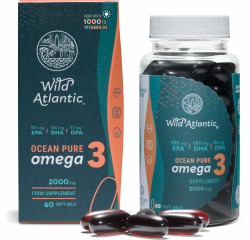Is It Better to Take Vitamin D3 With or Without Vitamin K2?
Introduction
Vitamin D3 and vitamin K2 are essential nutrients that play crucial roles in maintaining our health. Vitamin D3 is well-known for its role in calcium absorption and bone health, while vitamin K2 is vital for directing calcium to the bones and teeth and away from the arteries and soft tissues. This article explores whether it’s more beneficial to take vitamin D3 with or without vitamin K2.
The Role of Vitamin D3
Vitamin D3 (cholecalciferol) is a fat-soluble vitamin that is essential for:- Calcium Absorption: Facilitates the absorption of calcium from the intestines into the bloodstream.
- Bone Health: Promotes bone growth and remodeling by osteoblasts and osteoclasts.
- Immune Function: Enhances pathogen-fighting effects of monocytes and macrophages.
Sources of Vitamin D3
- Sunlight exposure
- Fatty fish (salmon, mackerel, sardines)
- Fortified foods (milk, orange juice)
- Supplements
The Role of Vitamin K2
Vitamin K2 (menaquinone) is another fat-soluble vitamin, primarily responsible for:- Calcium Regulation: Directs calcium to bones and teeth, preventing arterial calcification.
- Bone Health: Activates osteocalcin, a protein that binds calcium to the bone matrix.
- Cardiovascular Health: Prevents calcium deposits in the arteries, reducing the risk of cardiovascular diseases.
Sources of Vitamin K2
- Fermented foods (natto, sauerkraut)
- Animal products (liver, egg yolks, butter)
- Supplements
Synergy Between Vitamin D3 and K2
Bone Health
The combination of vitamin D3 and K2 is beneficial for bone health. Vitamin D3 enhances calcium absorption, while vitamin K2 ensures that the absorbed calcium is directed to the bones and teeth rather than accumulating in the arteries.Cardiovascular Health
Taking vitamin D3 with K2 helps prevent arterial calcification. Without sufficient vitamin K2, high levels of vitamin D3 can lead to increased calcium deposits in the arteries, potentially leading to heart disease.Scientific Evidence
A study published in the Journal of Bone and Mineral Research highlighted that combined supplementation of vitamins D3 and K2 significantly improves bone mineral density compared to vitamin D3 alone. Another research in the Journal of Nutritional Science and Vitaminology showed that the combination reduces arterial stiffness and improves cardiovascular health markers.Table 1: Benefits of Taking Vitamin D3 with Vitamin K2
| Health Aspect | Vitamin D3 Alone | Vitamin D3 with K2 |
|---|---|---|
| Bone Health | Enhances calcium absorption | Directs calcium to bones, prevents arterial calcification |
| Cardiovascular Health | Risk of arterial calcification | Prevents calcium deposits in arteries |
| Overall Benefits | Supports bone growth and immune function | Improves bone density and reduces cardiovascular risks |
Best Practices
- Combined Supplements: Many health experts recommend taking combined vitamin D3 and K2 supplements to maximize health benefits.
- Dietary Sources: Include foods rich in both vitamins, such as fatty fish and fermented foods, in your diet.
Conclusion
Taking vitamin D3 with vitamin K2 is generally more beneficial than taking vitamin D3 alone. This combination supports bone health, prevents arterial calcification, and enhances cardiovascular health. For optimal results, consider incorporating both nutrients into your daily regimen through diet and supplements.References
- Journal of Bone and Mineral Research
- Journal of Nutritional Science and Vitaminology
- Wild Atlantic Health. The Real Impact of Vitamin D Deficiency
- Wild Atlantic Health. Vitamin D3 and Vitamin K2
- Wild Atlantic Health. Does a Deficiency of Vitamin K Play a Role in Osteoarthritis and Rheumatoid Arthritis?





























